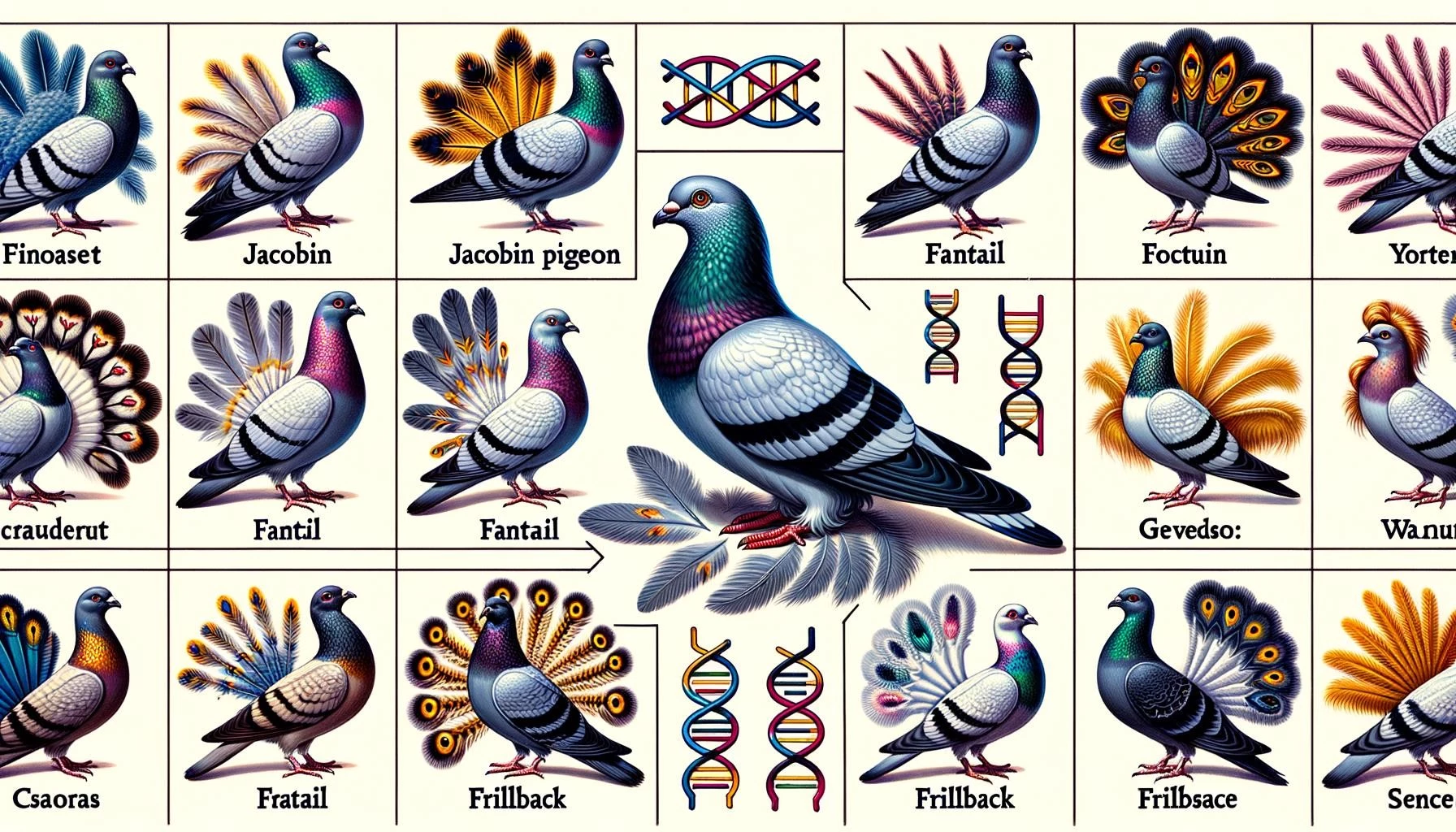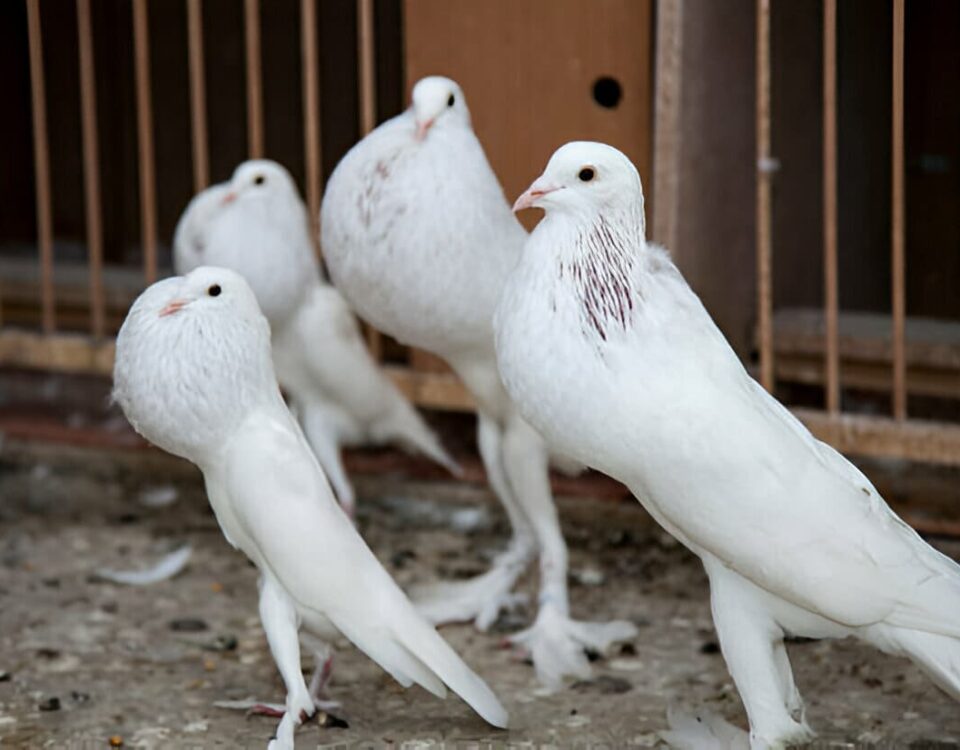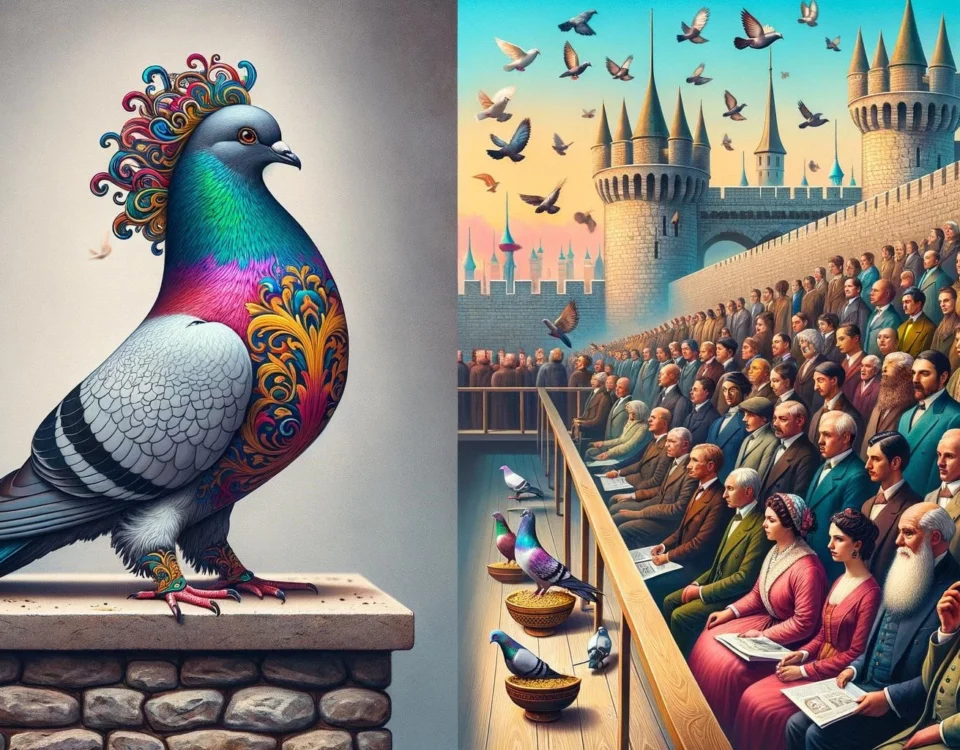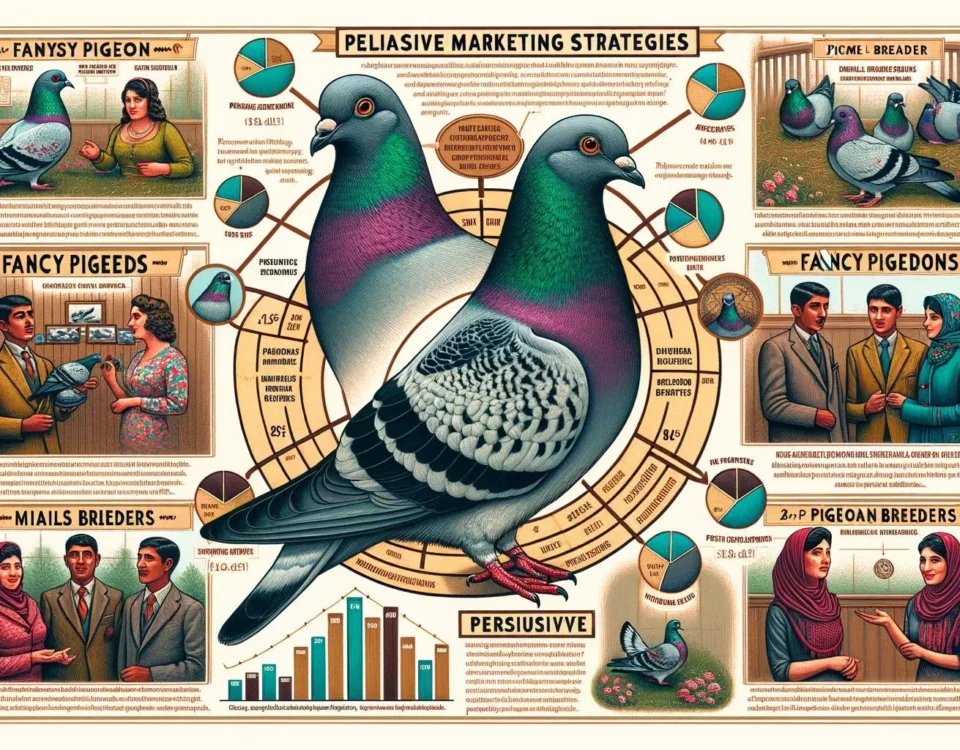Fancy pigeons are domesticated breeds of pigeons that have been selectively bred by pigeon fanciers for various traits such as size, shape, color, and behavior. These pigeons are often exhibited at pigeon shows and fairs. The genetics of fancy pigeons play a crucial role in determining their unique and distinct features. Understanding the genetics behind these traits can help breeders produce desirable pigeon breeds and enhance our knowledge of the evolution of domesticated pigeons.
Key Takeaways
- Fancy pigeons are domesticated breeds selectively bred for desirable traits.
- Genetic studies have revealed that all domestic pigeon breeds descend from the wild rock dove.
- The genetics of fancy pigeons contribute to their size, shape, color, and behavior.
- Research has identified specific genes responsible for traits such as head crests and feather pigmentations in fancy pigeons.
Origin and Genetic Diversity
Fancy pigeons have a common origin from the wild rock dove (Columba livia). The rock dove is the ancestor of all domestic pigeon breeds. Genetic studies have confirmed that all domestic pigeon breeds descend from this wild species. These studies have sequenced the genomes of different fancy pigeon breeds and found that they are more genetically similar to each other than to other closely related species of pigeons. This supports the theory that all domestic pigeon breeds have a common ancestral origin.
Furthermore, street pigeons, which are feral pigeons found in urban areas, have been found to be genetically similar to racing homing pigeons. This similarity is likely due to the frequent escape of racing pigeons into the wild. Thus, the genetics of fancy pigeons also overlap with those of street pigeons, indicating a shared genetic heritage.
Genetic variability is crucial for the health and vitality of pigeon breeds. Breeding programs that promote outcrossing and genetic diversity help maintain the robustness of the fancy pigeon population.
Specific Traits and Genetic Mutations
Several specific traits in fancy pigeons have been linked to specific genetic mutations. Head crests, for example, are feathers that grow in the reverse direction and vary in length and shape. Research has shown that a mutation in a specific gene is responsible for the development of head crests in pigeons. This gene mutation is believed to have evolved only once in the species and can be found in various fancy pigeon breeds.
Feather pigmentations, such as different colors and patterns, are also influenced by genetic mutations. Studies have identified three genes that control the different feather pigmentations in domestic pigeons, leading to the wide variety of colors seen in fancy breeds.
By studying these specific genetic mutations, scientists can gain insights into the mechanisms that underlie the development of complex traits in both pigeons and other bird species. This research helps shed light on the evolutionary processes that have shaped the diversity of pigeon breeds.
Significance of Pigeon Genetics
The genetics of fancy pigeons have both practical and scientific significance. Understanding the genetic basis of desirable traits can assist breeders in producing pigeons with specific characteristics, improving the quality and diversity of fancy pigeon breeds.
Furthermore, pigeons serve as valuable models for studying genetics and evolutionary processes. The domestication of pigeons by humans, which has led to the diversification of breeds, provides a unique opportunity to explore the genetic mechanisms underlying the emergence of diverse traits. By studying the genetics of fancy pigeons, scientists can gain insights into the genetic basis of complex traits in other species as well, ultimately contributing to our broader understanding of genetics and evolution.
In conclusion, the genetics of fancy pigeons play a vital role in determining the unique and distinct features of different breeds. Understanding the genetic mutations responsible for specific traits allows breeders to produce desired characteristics and enhances our knowledge of the evolution and diversity of domesticated pigeons.








